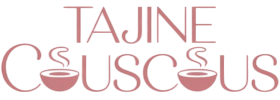
Imagine a cozy Moroccan riad at dusk, the air fragrant with a medley of herbs and spices, inviting you to unwind after a long day. For centuries, Morocco has been known for its rich culinary traditions and herbal remedies that promote health and wellness. Among these, herbal drinks hold a special place — especially when it comes to fostering a restful, rejuvenating sleep.
If you’ve ever struggled with insomnia or restless nights, you’re not alone. Today, many people are turning back to nature’s wisdom, seeking natural alternatives to synthetic sleep aids. Moroccan herbal drinks, deeply rooted in tradition and backed by modern science, are emerging as a gentle yet effective way to improve sleep quality.
In this comprehensive guide, we’ll explore the fascinating world of Moroccan herbal beverages, uncover their health benefits, share authentic recipes, and provide expert insights to help you incorporate these soothing drinks into your nightly routine.
The Rich Heritage of Moroccan Herbal Remedies
Morocco’s herbal traditions are centuries old, blending Berber, Arab, and Andalusian influences. The country’s diverse climate allows for a remarkable variety of herbs and plants, many of which have calming, sedative, or anxiolytic properties. Moroccan herbal medicine is often intertwined with cultural rituals, making these drinks not just health remedies but also a way to nurture the soul.
For example, Moroccan mint tea, with its invigorating flavor, is also believed to aid digestion and relaxation. Similarly, herbs like chamomile, lavender, and sage have long been used in Moroccan households for calming nerves and promoting sleep. These natural remedies are often prepared with love and shared among family members, reinforcing their significance in daily life.
Why Herbal Moroccan Drinks Promote Better Sleep
Understanding how these drinks work requires a peek into the science of sleep. Quality sleep depends on a complex interplay of neurotransmitters, hormones, and bodily systems. Certain herbs contain compounds that can influence these biological processes, making it easier to fall asleep and stay asleep.
The Power of Phytochemicals
Herbs such as chamomile and lavender contain apigenin and linalool, compounds known for their calming effects. These phytochemicals bind to specific receptors in the brain, reducing anxiety and nervous tension. Scientific studies, including those summarized by the National Center for Complementary and Integrative Health, support the efficacy of these herbs in enhancing sleep quality.
Mood Regulation and Stress Relief
Herbal drinks often serve as a ritual that signals your body it’s time to wind down. The act of preparing and sipping warm herbal beverages can lower cortisol levels (the stress hormone), easing mental clutter and preparing the mind for restful sleep. This aligns with research suggesting that relaxing bedtime routines improve sleep quality, especially when they involve natural, non-pharmacological elements.
Antioxidants and Anti-Inflammatory Benefits
Chronic inflammation and oxidative stress can impair sleep. Many Moroccan herbs, like sage and rosemary, are rich in antioxidants that combat these issues, promoting overall health and better sleep.
Authentic Moroccan Herbal Drinks for Better Sleep: Recipes & Rituals
Let’s dive into some traditional Moroccan recipes that you can try at home. These beverages are not only flavorful but are rooted in centuries of herbal wisdom aimed at calming the mind and body.
1. Moroccan Mint and Chamomile Tea
Ingredients:
- Fresh mint leaves (a handful)
- Dried chamomile flowers (2 teaspoons)
- Green tea leaves (optional, for added antioxidants)
- Honey or natural sweetener (to taste)
- Water
Preparation:
- Boil water and pour it over the chamomile flowers and green tea leaves in a teapot.
- Allow steeping for about 5 minutes to extract the calming properties.
- Add fresh mint leaves and let steep for another 2 minutes.
- Strain into cups, sweeten with honey if desired, and sip slowly before bed.
Benefits: This soothing brew combines the sedative effects of chamomile with the refreshing calm of mint, creating a perfect bedtime ritual.
2. Sage and Lavender Infusion
Ingredients:
- Dried sage leaves (1 teaspoon)
- Dried lavender flowers (1 teaspoon)
- Lemon slice (optional)
- Honey (optional)
- Water
Preparation:
- Bring water to a boil and pour over sage and lavender in a heatproof container.
- Cover and steep for 8-10 minutes.
- Strain the infusion into a mug, add lemon or honey if desired.
- Enjoy warm, preferably 30 minutes before sleep.
Benefits: Sage and lavender are renowned for their anxiety-reducing and sleep-promoting properties, making this an ideal calming drink.
3. Rooibos and Rosewater Elixir
While not native to Morocco, Rooibos is widely consumed in North Africa and shares many calming benefits.
Ingredients:
- Rooibos tea bag
- Rosewater (a splash)
- Honey (optional)
Preparation:
- Brew the Rooibos tea as per package instructions.
- Add a splash of rosewater for floral aroma and relaxation.
- Sweeten with honey if desired.
- Drink warm, enjoying the floral notes and calming effects.
Benefits: Rich in antioxidants, Rooibos combined with rosewater offers a gentle, caffeine-free way to unwind.
The Ritual of Preparation: More Than Just a Drink
In Moroccan culture, preparing herbal drinks isn’t just about the ingredients — it’s a mindful ritual. The act of boiling water, selecting herbs, and savoring the drink becomes a meditative practice that signals your body to relax. This daily ritual can help reinforce sleep cues, much like a bedtime meditation or gentle yoga.
Consider creating a cozy corner in your home dedicated to your herbal routine. Light candles, play soft music, and take your time to prepare these drinks. Over time, this practice can become a cherished part of your nightly wind-down, contributing significantly to improved sleep hygiene.
Scientific Insights and Expert Opinions
While traditional knowledge forms the backbone of Moroccan herbal remedies, modern science increasingly supports their use. According to a review published in Frontiers in Pharmacology, herbal teas containing chamomile, lavender, and valerian have demonstrated sleep-enhancing effects in clinical trials.
Moreover, herbalists and sleep specialists highlight the importance of personalized approaches. Some herbs work better for certain individuals, depending on their unique physiology and sleep challenges. Consulting with a healthcare provider or a qualified herbalist can help tailor herbal routines suited to your specific needs.
Safety and Precautions
While Moroccan herbal drinks are generally safe, some herbs may interact with medications or cause allergies. For example, sage should be used cautiously in those with high blood pressure, and lavender may not be suitable for very young children. Always source herbs from reputable suppliers, and if you are pregnant, nursing, or on medication, seek professional advice before adding new herbal remedies to your routine.
Comparing Key Moroccan Herbal Sleep Aids
| Herb / Drink | Primary Benefits | Common Preparation | Caffeine Content | Notable Compounds | Traditional Use |
|---|---|---|---|---|---|
| Chamomile | Anxiety reduction, sleep aid | Tea infusion | None | Apigenin | Calm nerves, promote sleep |
| Lavender | Relaxation, stress relief | Oil, tea, infusion | None | Linalool | Calmative, aromatherapy |
| Sage | Mood enhancer, cognitive boost | Tea or infusion | None | Rosmarinic acid | Reduce stress, improve sleep |
| Rosewater & Rooibos | Antioxidant, floral aroma | Brew + splash | None | Polyphenols, antioxidants | Relaxation, antioxidant boost |
| Mint | Refreshing, digestive aid | Tea | None | Menthol | Calm nerves, digestion aid |
This comparison highlights how these herbs and drinks synergize their calming properties, making them excellent choices for a natural sleep-promoting routine.
Frequently Asked Questions (FAQs)
Q1: Are Moroccan herbal drinks safe for children?
Most herbal drinks like chamomile and mint are safe for children in moderation. However, always consult a pediatrician before offering herbal remedies to young children, especially for herbs like sage or lavender.
Q2: How often should I drink these herbal teas for better sleep?
Consistency is key. Incorporate your preferred herbal drink into your nightly routine, ideally 30 minutes before bed, for at least a few weeks to notice improvements.
Q3: Can I combine multiple herbs?
Yes, but cautiously. Combining herbs like chamomile and lavender is common and generally safe. Avoid mixing too many herbs to prevent potential interactions. Consulting an herbalist can help optimize your blends.
Q4: Do these drinks contain caffeine?
Most Moroccan herbal drinks like chamomile, mint, sage, and rooibos are caffeine-free, making them suitable for bedtime.
Q5: How long do herbal infusions last?
Best consumed fresh or within 24 hours if stored in the refrigerator. Prepare only what you plan to drink in one sitting to preserve potency.
Conclusion: Embrace Nature’s Wisdom for Restful Nights
In a world filled with constant stimulation and digital distractions, finding natural ways to improve sleep can feel like a gift from ancient traditions. Moroccan herbal drinks offer a gentle, holistic approach rooted in centuries of cultural wisdom and supported by modern science.
By incorporating these calming beverages into your evening routine, you’re not just drinking herbs — you’re embracing a ritual that nurtures your body, calms your mind, and prepares you for restorative sleep. Whether it’s a steaming cup of chamomile and mint or a fragrant infusion of lavender and sage, these drinks invite you to slow down, breathe deeply, and reconnect with nature’s soothing power.
Next time you find yourself tossing and turning, consider reaching for a traditional Moroccan herbal remedy. With patience and consistency, you’ll discover that sometimes, the simplest ingredients can lead to the sweetest dreams.
Sweet dreams await — naturally.
Start your journey today by exploring local herbal markets or reputable online sources for authentic Moroccan herbs. Remember, a good night’s sleep is the foundation of vibrant health and happiness.
